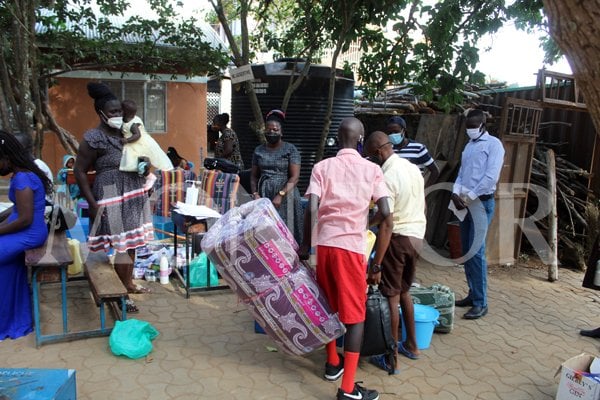Iceland injects Shs1b in Uganda to maintain hygiene in schools

In a move aimed at maintaining hygiene in schools, the Government of the Republic of Iceland has given UNICEF up to $300,000 (about Shs1.07 billion) to get critical hand washing facilities and supply it to 600 primary and secondary schools across the country.
In a move aimed at maintaining hygiene in schools, the Government of the Republic of Iceland has given UNICEF up to $300,000 (about Shs1.07 billion) to get critical hand washing facilities and supply it to 600 primary and secondary schools across the country.
Provision of safe water, sanitation and hygiene conditions plays an essential role in protecting populations from infections during pandemics, including the Covid-19 outbreak. The pandemic still remains a national and global health problem with about 3,595 dead since March 2020 when its outbreak was confirmed in the country.
In a statement dated March 17, UNICEF said an additional 200 schools supported by the Children's Fund in 2020-2021 will receive Water, Sanitation and Hygiene (WASH) supplies only.
The supplies to be given to the 600 schools with the Government of Iceland funding are: liquid soap, bleach, boots, gloves, cleaning mops, sprayers, and alcohol-based sanitizers to promote proper hygiene practices. To support adequate use of the WASH packages, the schools will ensure availability of water and manpower for effective cleaning of school facilities and hygiene promotion.
It has also been decided that the schools will also receive several child-friendly posters reminding students about the importance of personal hygiene.
“Iceland is committed to supporting efforts towards eradication of disease, illiteracy and poverty globally. In Uganda, the COVID-19 pandemic has had adverse effects on health, learning, and livelihoods of communities,” said Thordis Sigurdardottir, Head of Mission Embassy of Iceland.
Ms Sigurðardóttir added: “The most affected are children, especially girls, and youth. The WHO and CDC emphasize handwashing with soap as a practice that could protect about 1 out of every 3 young children who get sick with diarrhoea and 1 out of 5 young children with respiratory infections including Covid-19. This improves school attendance leading to improved child development.”
According to her, Iceland recognises the role played by UNICEF in promoting the rights and wellbeing of every child globally.
“We are glad to contribute to UNICEF’s mission through our modest support that will be used to improve handwashing facilities and practises in 600 schools in Uganda,” she said.
In Uganda, schools have been open since January 2022. To ensure they remain open, investments in infection prevention and control through adequate water, sanitation and hygiene facilities are key and will contribute to limiting exposure to the disease and probability of its transmission among pupils, students, teachers, and non-teaching staff within the schools.
“Inadequate WASH services in schools and communities can result into poor health and increase several diseases like diarrhoea, infections, malnutrition, water-borne diseases among others which all hinder the growth of children. With this additional funding from the Iceland Government, UNICEF will contribute to the reduction of water-borne and poor hygiene related diseases in 600 schools,” said Dr. Munir Safieldin, UNICEF representative in Uganda.
Dr Safieldin pointed out that as the Government of Uganda continues to contain the spread of Covid-19, it is important that schools remain open to benefit millions of children currently catching up on what was missed when schools closed.
He also stressed that the Iceland support will ensure safe and continued learning to benefit children, especially the most marginalized that were most affected by the pandemic.




